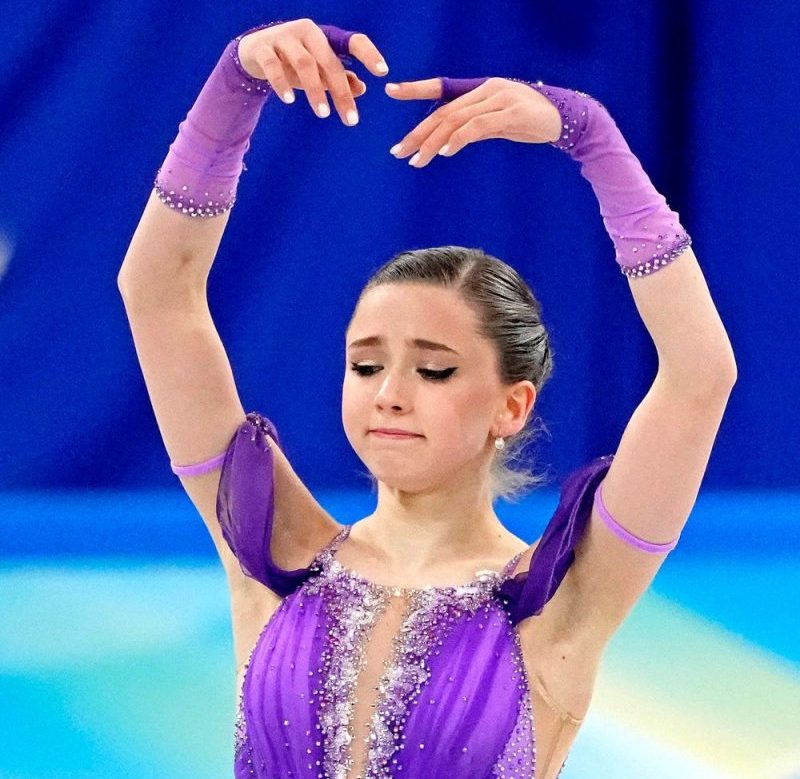
WADA likely to appeal Russian anti-doping decision on skater Kamila Valieva
A Russian Anti-Doping Agency disciplinary tribunal has found that while then-15-year-old Olympic figure skater Kamila Valieva committed an anti-doping rule violation, she bore “no fault or negligence” for it, the World Anti-Doping Agency announced Friday morning.
RUSADA imposed no sanction except for the disqualification of her results on the date the sample was collected, which was Dec. 25, 2021.
It is considered very likely that WADA will appeal the decision to the Court of Arbitration for Sport, which would then make a final decision on Valieva’s punishment and eligibility to compete.
WADA said it will wait to announce its plans until after it sees a copy of the RUSADA decision.
“However, based on the elements of the case with which WADA is already familiar, the agency is concerned by the finding of ‘no fault or negligence’ and will not hesitate to exercise its right of appeal to the Court of Arbitration for Sport, as appropriate,” WADA said in a statement.
U.S. Anti-Doping Agency CEO Travis Tygart blasted the RUSADA ruling in a text message Friday morning, urging action not only from WADA but also the International Skating Union, the worldwide federation governing figure skating.
“WADA and the ISU have to appeal this decision for the sake of the credibility of the anti-doping system and the rights of all athletes,” Tygart said. ‘The world can’t possibly accept this self-serving decision by RUSADA, which has been a key instrument of Russian state-sponsored doping fraud and is non-compliant with the world anti-doping code.”
Eleven months ago at the Winter Olympics, Russia won the gold medal, the United States won the silver medal and Japan won the bronze in the team figure skating competition. The following day, those results were thrown into disarray when Valieva, the star of the Russian team, was found to have tested positive for the banned substance trimetazidine the previous December, forcing the unprecedented cancellation of the event’s medal ceremony.
There could be a re-ordering of the medals if Valieva were to be disqualified by CAS, with the United States moving up to take the gold, followed by Japan and Canada, the fourth-place finishers in the competition.
Another CAS panel that convened at the Beijing Olympics allowed Valieva to continue to compete in the women’s competition at the Games, citing the fact that Valieva was a “protected person” (a minor in this case) under WADA rules. That CAS ruling did not address the merits of the doping case and in fact allowed her to compete in part because of the possibility that she might not be banned at a later date.
‘As we approach the one-year anniversary of the Beijing Games, it remains very important that the figure skating team event athletes who competed in Beijing get the resolution they deserve,” U.S. Olympic & Paralympic Committee CEO Sarah Hirshland said Friday afternoon. ‘We thank WADA for their commitment to reviewing this issue and moving the process forward as expeditiously as possible.”
